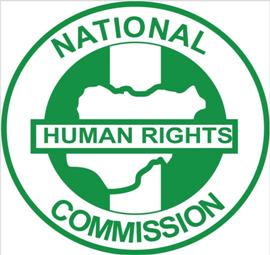The National human rights Commission (NHRC) has tasked the Federal Government
on domestication of the African Commission Protocol to the African Charter on Human and People’s Rights, specifically Article 34.
The Chairperson, Governing Council, NHRC , Dr Salamatu Suleiman, made the call at a town hall on the future of litigating human rights in Nigeria held in Abuja.
The Town hall was the first in the series of events scheduled to mark the Human Rights Day on Dec.6.
Speaking, Suleiman said that domestication of the Protocol would grant individuals direct access to the African Commission, ensuring a more accessible and efficient system for seeking redress for human rights violations.
” In addition, I urge the government to initiate constitutional amendments to make Chapter II rights justiceable. In addressing this, stakeholders, including the judiciary and the National Assembly, must engage in a collaborative effort.
” This will empower individuals to enforce their socio-economic rights through the courts, ensuring greater accountability and protection for all Nigerians.
” Moreover, the government should enact specific legislation that provides for the enforcement of socio-economic rights. This legislation should clearly define these rights, establish procedures for seeking redress, and ensure robust enforcement mechanisms,” she said.
According to her, the event is aimed at advancing the promotion, protection, and enforcement of human rights in Nigeria and sensitizing stakeholders on critical human rights issues.
She stressed athat mandate entrusted to the National Human Rights Commission was not merely a legal obligation.
“It is a moral imperative, a call to action to build a society where dignity, freedom, and justice are the cornerstones of our national life.
” As we discuss the future of litigating human rights, we ground our discussion in the formidable legal framework provided by the Nigerian Constitution.
”Specifically chapters II and IV, the Fundamental Rights (Enforcement Procedure) Rules, and the domesticated African Charter on Human and Peoples’ Rights,” she said.
According to her, these instruments are not mere documents; they are commitments to uphold the rights of everyone in Nigeria.
”Our legal framework enshrines fundamental rights and freedoms, the lived experience of many people in Nigeria falls short of these ideals.
”We acknowledge the challenges that persist.’
” Ignorance of rights and legal procedures, lackadaisical attitudes towards human rights and poverty create formidable barriers, hindering the access to justice that should be the birthright of everyone in Nigeria.
” Additionally, the non-justiciability of Chapter II of the Constitution is also a major hurdle we must overcome because a great percentage of rights abuse and violations revolve around the issues under this Chapter.
” This chapter outlines fundamental socio-economic rights, including the right to education, healthcare, housing, and work.
”However, these rights are currently not directly enforceable in court, creating a major hurdle for individuals seeking redress for violations,” she added.
The impact of this challenge according to Suleiman , include limited access to justice, reduced accountability, discouragement of activism, undermining International Commitments and erosion of public trust.
She added that addressing the issue of non-justiciability is crucial for ensuring the full enjoyment of human rights in Nigeria.
According to her the undomesticated Protocol, particularly Article 34(6), which grants individuals the right to directly petition the African human rights body, remains inaccessible to many Nigerians.
” This lack of domestication poses a significant challenge for several reasons: First, this restricts access to international justice, particularly for individuals facing resource constraints or difficulties navigating complex legal procedures.
” Second, individuals are forced to exhaust domestic legal remedies before petitioning the African Commission. This adds an additional layer of complexity and can significantly delay access to justice, especially when domestic legal systems are slow or ineffective.
“Third, the non-domestication of this Protocol can discourage human rights activists and organizations from pursuing international remedies, which can stifle the fight for human rights advancement in Nigeria and limit international cooperation,” she stated.
She said these challenges were insurmountable if we worked together to create a future where litigation was a viable and accessible tool for upholding human rights in Nigeria.
Suleiman added that, ”It is a collective responsibility.
” We must reject the apathy that allows human rights violations to fester. We must embrace legal literacy and familiarize ourselves with our rights.
” We must demand accountability from state actors and speak out against injustice. In the face of these challenges, I implore everyone in Nigeria not to put their rights in abeyance.
” Human rights are not mere privileges; they are the bedrock of our collective well-being. As state actors, we bear the duty to protect and promote these rights,” she said.
News Agency of Nigeria (NAN) reports that the theme for the 2023 human right is “Dignity, Freedom, and Justice” for all.(NAN)
By Edith Nwapi




